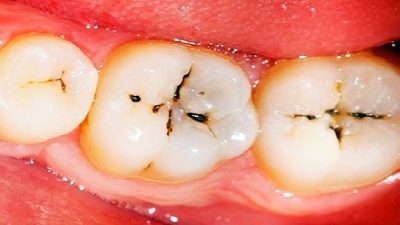
A cavity, also called tooth decay, is a hole that forms in your tooth. Cavities start small and gradually become bigger when they’re left untreated. Because many cavities don’t cause pain in the beginning, it can be hard to realize that a problem exists. Regular dental appointments can detect tooth decay early.
Cavities and tooth decay are among the world’s most common health problems. They’re especially common in children, teenagers and older adults. But anyone who has teeth can get cavities, including infants.
If cavities aren’t treated, they get larger and affect deeper layers of your teeth. They can lead to a severe toothache, infection and tooth loss. Regular dental visits and good brushing and flossing habits are your best protection against cavities and tooth decay.
The signs and symptoms of cavities vary, depending on their extent and location. When a cavity is just beginning, you may not have any symptoms at all. As the decay gets larger, it may cause signs and symptoms such as:
- Toothache, spontaneous pain or pain that occurs without any apparent cause
- Tooth sensitivity
- Mild to sharp pain when eating or drinking something sweet, hot or cold
- Visible holes or pits in your teeth
- Brown, black or white staining on any surface of a tooth
- Pain when you bite down
Picture Credit : Google




